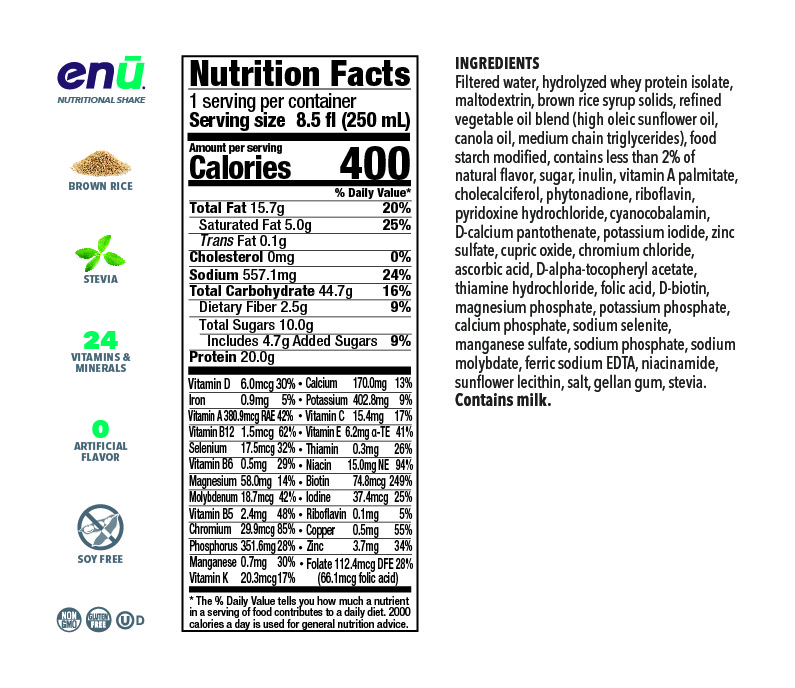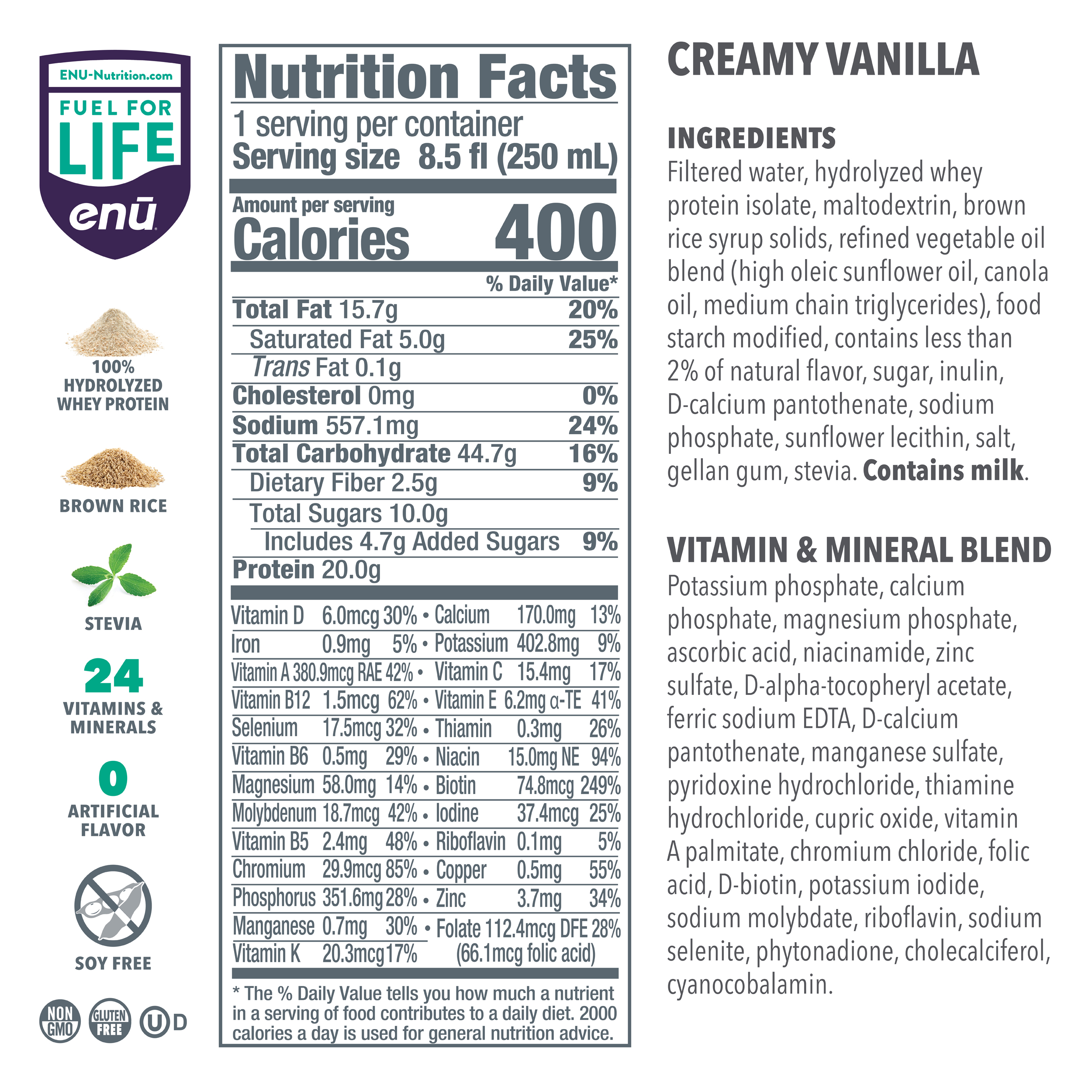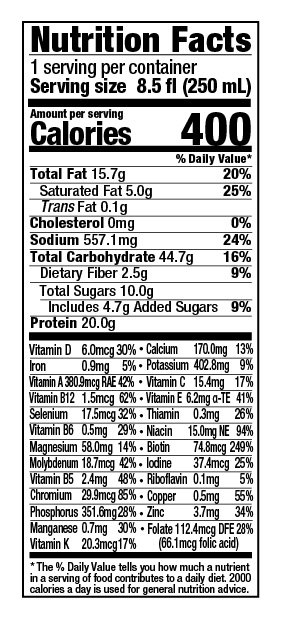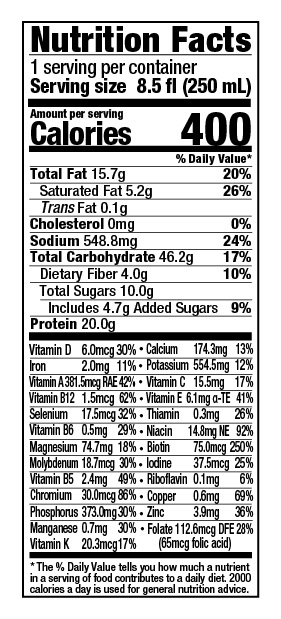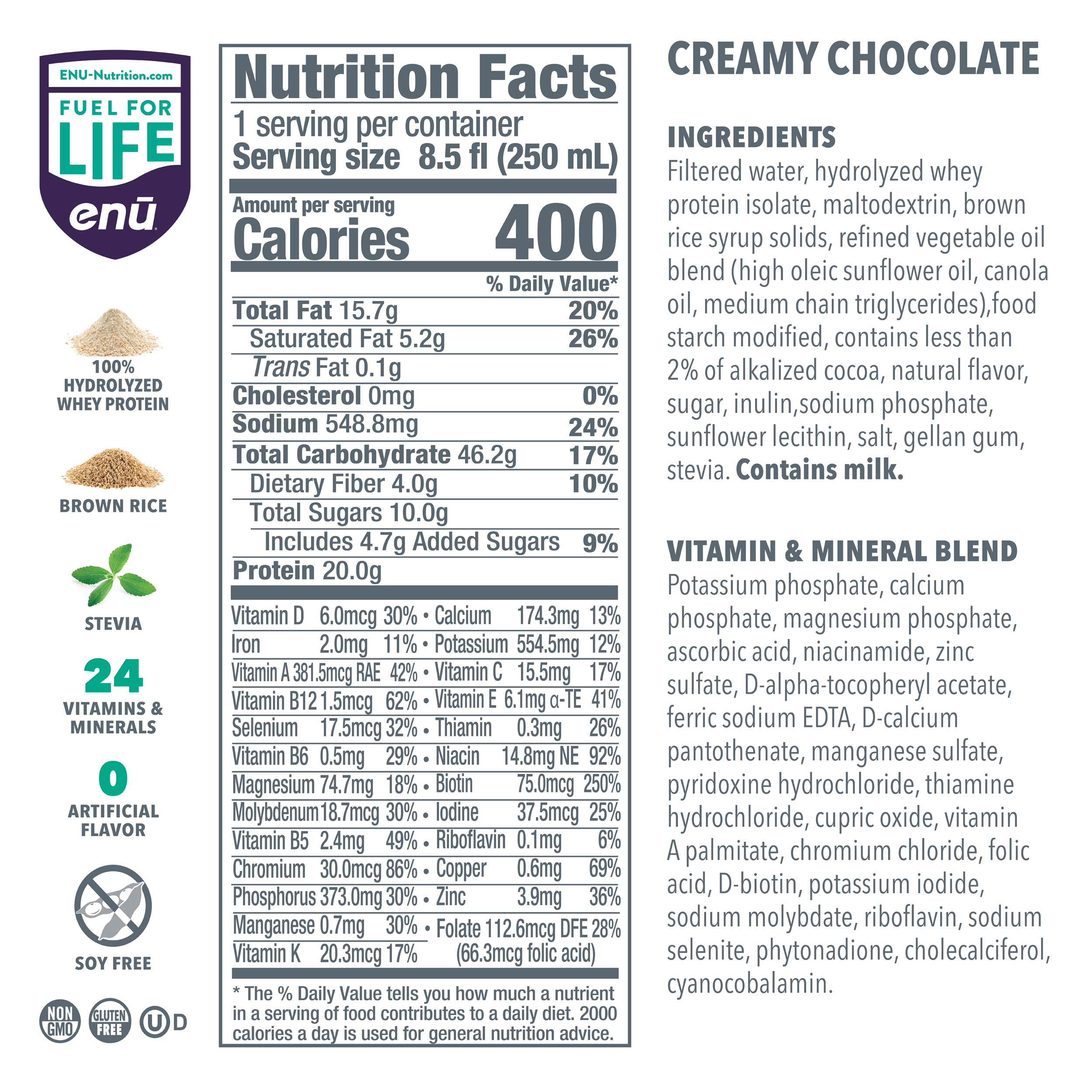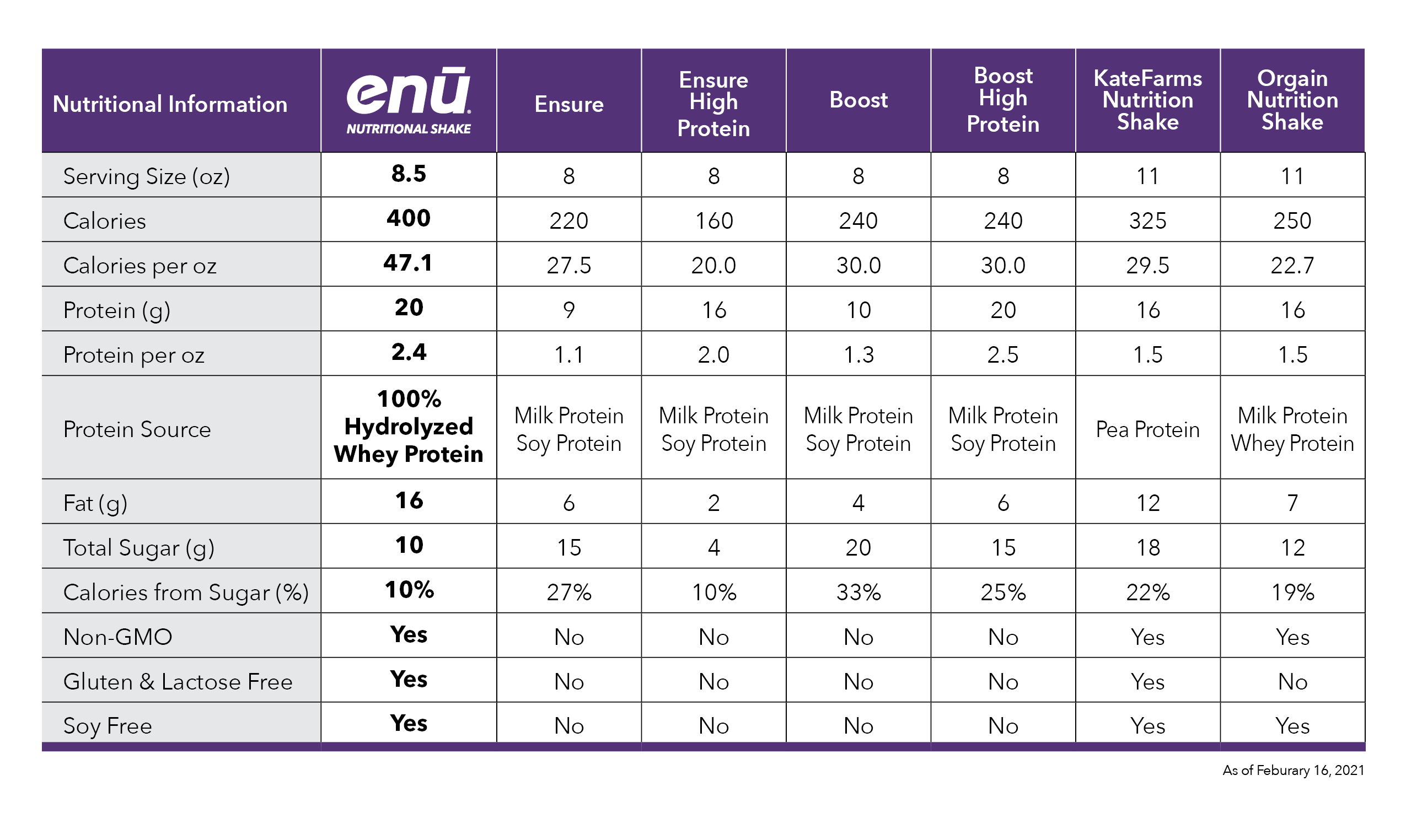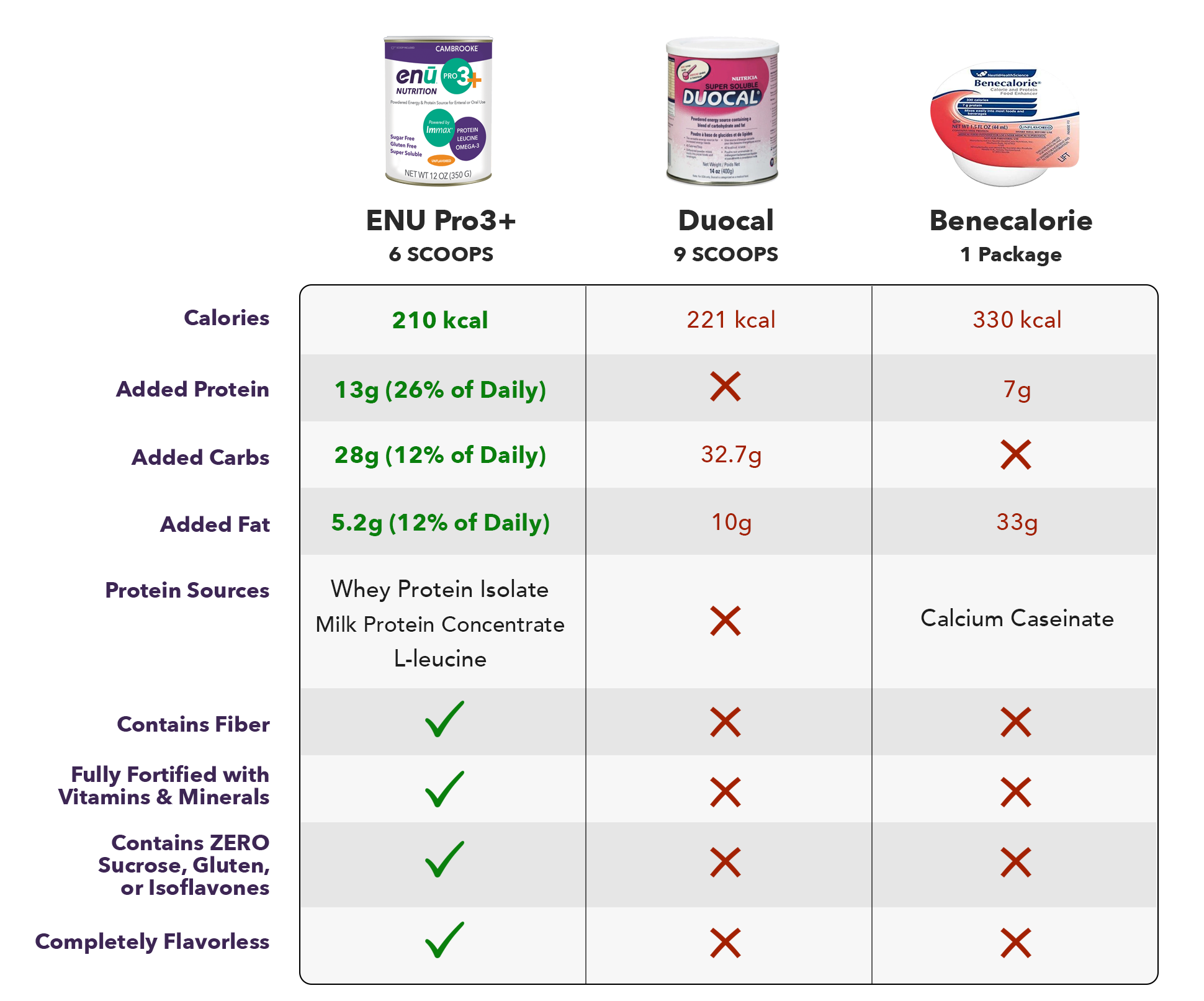
Get a FREE
ENU Intro Pack*
*Just Pay $2.00 Shipping

At What Age Does Sarcopenia Generally Begin?
Although each individual effect of aging can be taxing on its own, the true source of trouble is the way each condition builds on the others, causing a huge impact on a person’s quality of life over time. One of the most common health issues – and one that can easily lead to additional problems – is sarcopenia, the age-related loss of muscle tissue experienced by people around the world. Unlike some of the results of aging, sarcopenia can be fought with a few simple lifestyle changes; first, however, you’ll need to understand the ailment and spot it when it starts. So, at what age does sarcopenia generally begin? To find out, keep reading as the team at ENU, makers of nutrition shakes for the elderly, discuss this topic.
The Age When Sarcopenia Generally Begins
Although the symptoms of sarcopenia are closely linked with age, the effects associated with the condition tend to begin when a person is relatively young. On average, a person’s body begins to shed muscle mass starting around age 30, albeit at a slow rate – something in the neighborhood of 3 to 5% each decade, or about half a pound per year. In most cases, this rate will stay steady for about 30 years or so, but once a person hits age 60 – a ballpark figure, to be clear – this rate will often begin to accelerate pretty dramatically; by the time they’re age 70, a person’s muscle mass can start wasting away at a rate as fast as 15% per decade, or three to five times the rate at which it started.
The available information on sarcopenia shows that not all older adults will experience these effects, or at least not at the same rate; experts believe that this condition affects about 30% of those over 60 and more than half of those over age 80. That said, there is still debate regarding what exactly constitutes sarcopenia and at what age sarcopenia – as a clear-cut, diagnoseable condition – generally begins, so depending on who you ask, the point in life when this ailment appears could be different.
What to Expect If You Develop Sarcopenia with Age
Whether you are just exiting your 20s or are well into your golden years, there’s a real chance you could start developing the symptoms of sarcopenia as you age, if you haven’t already. Once that happens, expect the effects – which we’ll look at here – to build over time. In addition to the basic symptoms of sarcopenia, which include a loss of muscle mass and physical strength, those with this ailment face some significant secondary health risks.
As you might expect, a loss of strength can make it more difficult to perform daily tasks, from something as simple as opening a pickle jar to lifting a heavy box or moving furniture. The greater danger of sarcopenia, however, is a result of the condition’s effects on balance and gait: an increased risk of falls. For seniors, a fall can lead to severe injury and the loss of independence, making sarcopenia a serious concern, and even in cases where a fall hasn’t occurred, the symptoms of sarcopenia can make it much harder to get around. Altogether, these effects can hamper a person’s quality of life, especially if left unchecked, but there are steps a person can take to address the issue effectively.
What to Do at the Age When Sarcopenia Usually Begins
As we mentioned earlier, sarcopenia – though unavoidable for many people – is also a condition that can be fought by those it affects, often with great success. In fact, although there’s no FDA-approved drug for the treatment of sarcopenia specifically, most older adults do have some readily available treatment options at their disposal, ones strikingly similar to the methods people use – at any age – to create new muscle tissue: diet and exercise.
This phrase may sound like a worn-out recommendation, but in the case of sarcopenia, the combination of these lifestyle factors can genuinely offer a host of benefits, even allowing those with the condition to stop or reverse its effects. The first, diet, requires that a person get plenty of protein each day; for seniors, this translates to about half a gram of protein per pound of body weight daily, which can be a tough goal to hit if you’re struggling with appetite loss. To help, consider fast sources of protein like ENU meal replacement shakes, which offer 20 grams per carton from whey and soy sources, two of the easiest for the body to digest and absorb.
However, protein alone is not enough to stop sarcopenia as you age. Once sarcopenia begins, it’s important that you talk to your doctor about the safety of a strength-building exercise routine; provided they approve, you should then work with a qualified personal trainer to develop a routine that will allow you to effectively increase your body’s muscle mass. In most cases, this will involve what’s called progressive resistance training, a variety of workout in which you start at a weight that’s comfortable for you, then increase the resistance gradually as you get stronger. This exercise will put your dietary protein to use as fuel for producing new muscle cells, allowing you to retain – or even improve – your strength, mobility, and balance, not to mention your quality of life.
Get Convenient, Healthy Protein to Fight Age-Related Sarcopenia After It Begins
Adjusting your lifestyle to battle an illness is never easy, but the fight against sarcopenia can be simpler than most, and it has the benefit of being drug-free. Whether you are trying to build muscle mass at age 70 or slow down the effects of this condition, make sure you’re getting enough protein in your diet with the nutrition shakes and Pro3+ nutritional powder available from ENU – plus plenty of exercise – and halt the march of sarcopenia today. To learn more, visit us online or call (855) 266-6733 today.




